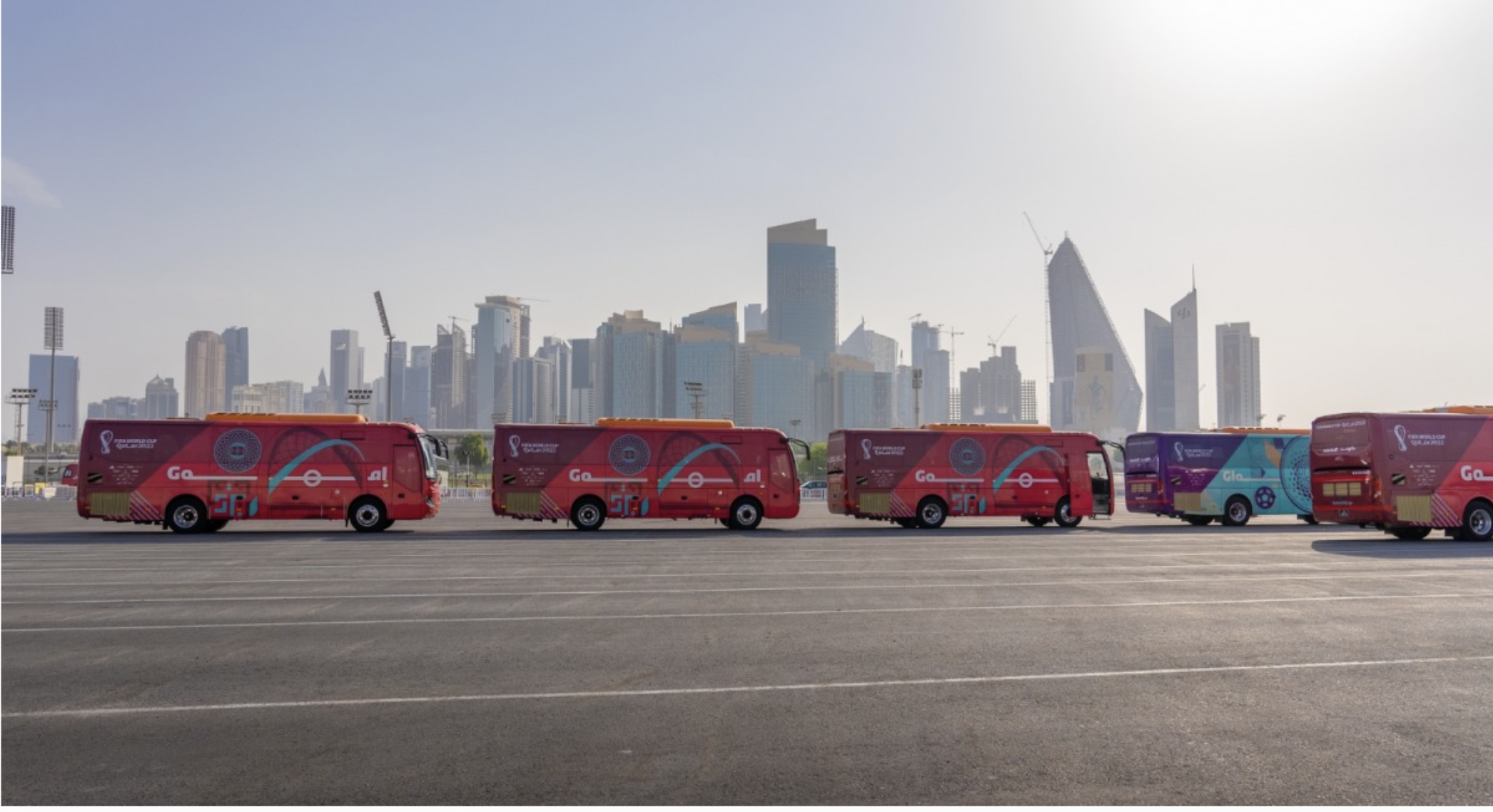On September 21 and 22, Mowasalat conducted a demo run to test more than 2,300 tournament service buses on 80 routes, simulating the World Cup’s busiest days.
Mowasalat (Karwa) will use around 4,000 buses to transport fans during the FIFA World Cup in Qatar later this year, the company announced.
“We have added over 2,300 buses for the mega sporting event. In general, about 4,000 buses will be deployed including public transit buses,” said Khalid Kafoud, Director of Public Relations and Communications at Mowasalat in an interview with Qatar Radio.
According to Kafoud, Mowasalat will also operate 800 taxies during the World Cup.
“In addition, over 1,300 taxies were launched recently under new ‘Karwa-Fox’ economy service in partnership with Fox Transport.”
According to the official, the service will make it simple for customers to acquire affordable transportation via the Karwa Taxi app.
He said that the company has more than 1,600 hybrid buses, the newest diesel-powered fleet that runs on euro-6 engines, and employs RW technology to reduce the harmful impacts of vehicle smoke.
“Following the efforts by Qatar to provide eco-friendly transportation, Mowasalat Karwa has over 850 electric buses which are operating with zero carbon emissions and are noise-free,” said Kafoud.
Furthermore, he stated that every electric bus charging station is now operating at full capacity. Additionally, fast charging stations have been set up in numerous locations across the country.
According to him, Qatar will be the first FIFA World Cup host to deploy such a large number of electric buses as well as electric and hybrid taxis to significantly lower carbon emissions throughout the competition.
He said that Mowasalat has been putting together an action plan for the World Cup for years, including plans for providing buses, drivers, and training programmes.
On September 21 and 22, the company conducted a demo run to test more than 2,300 tournament service buses on 80 routes, simulating the World Cup’s busiest days.
The test was designed to assess the fleet’s operational capacity and crew readiness. The test run of the buses included a simulation of transporting spectators from lodging to stadiums.
He stated that the road networks, including metro stations and airports, have been tested to guarantee their preparedness for the event given the anticipated large number of fans during the World Cup. To meet the needs of residential areas, they have also started adding 90 new electric buses to the Metrolink fleet.
According to Kafoud, these buses, given their size, are ideal for residential areas because they are completely electric, environmentally benign, and emit no carbon dioxide.
They also guarantee smooth operation due to their near-noiseless operation. The buses are expected to start running on October 1.







